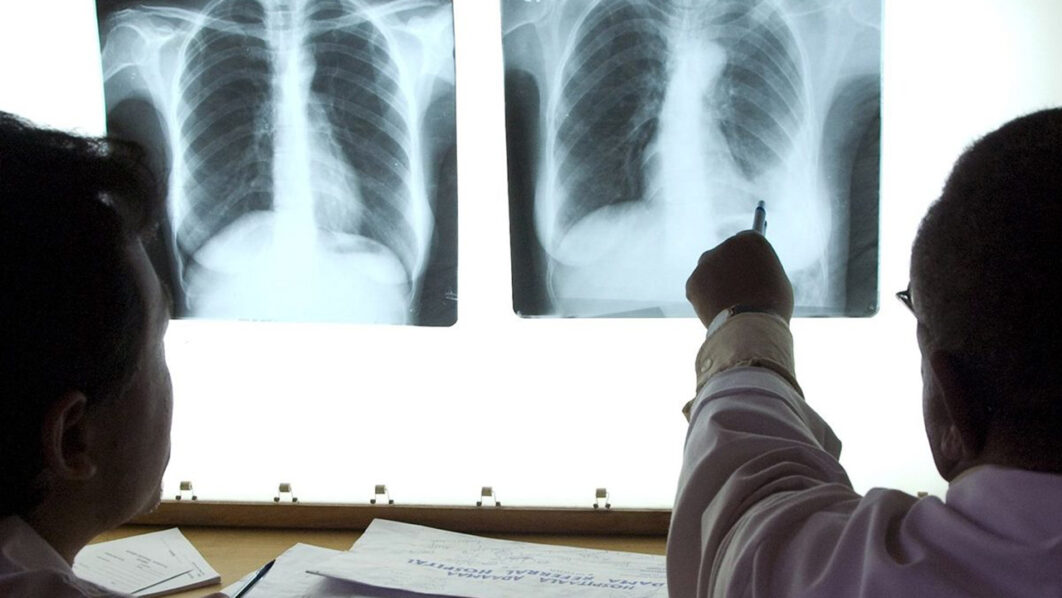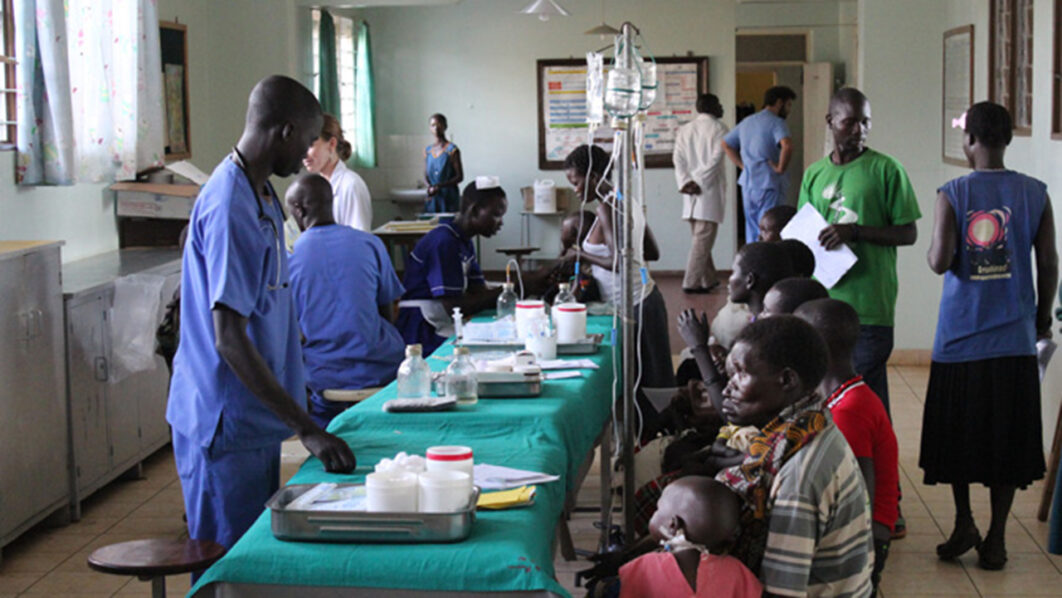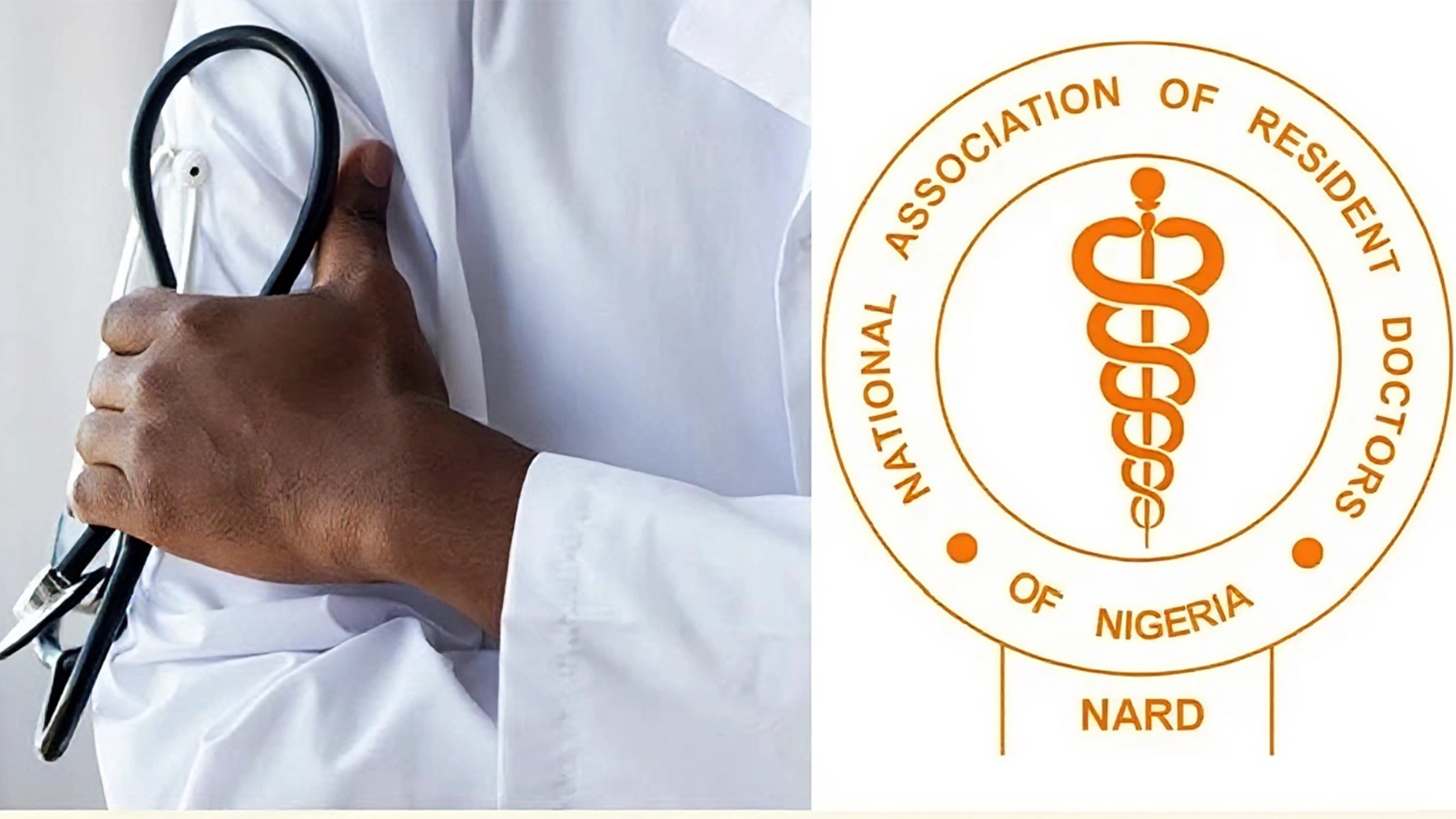
Tuberculosis Prevention Therapy (TPT) has been shown to significantly reduce mortality and prevent the disease in vulnerable populations, but efforts and strategies to scale up this treatment in Nigeria towards ending TB by 2030 have recorded slow progress due to some challenges. In this report, CHUKWUMA MUANYA identifies the challenges and efforts at addressing them.
Medical experts and patients have alerted the Nigerian public to the many challenges faced by people with tuberculosis (TB) and their caregivers in accessing the free testing, prevention and treatment programme initiated by the Federal Government through the National Tuberculosis, Leprosy and Buruli Ulcer Control Programme (NTLBCP).
They listed, among other things, high level of poverty of most patients, frequent out-of-stock drug syndrome at the treatment centres, ignorance and poor awareness, stigma and discrimination, adverse drug reactions such as bloody urine and swollen legs as threatening TB Prevention Therapy (TPT) and plan to end the disease by 2030.
The global plan to end TB as a public health challenge by 2030 provides a blueprint of priority actions required and a detailed estimate of financial resources needed. The stakeholders, during a three-day workshop to promote literacy, acceptability and demand for short-course TPT among eligible populations through focused multimedia approaches, stakeholder engagement and policy advocacy, told journalists that TPT had been shown to significantly reduce mortality and prevent tuberculosis in vulnerable populations, but the efforts and strategies to scale up this treatment in Nigeria have recorded slow progress.
The workshop was organised by Journalists Against AIDS (JAAIDS) Nigeria in partnership with the Lagos State TB Control Programme.According to the World Health Organisation (WHO) 2022 Global TB report, Nigeria has an incidence of 219 per 100,000 population, the highest burden of TB in Africa and sixth globally. The disease kills 268 people in the country every day, yet TB cases are under-reported, increasing the high risk of transmission. It is estimated that one missed case can transmit TB to 15 people in a year.
According to the Deputy Director and Programme Manager, Lagos State Tuberculosis, Leprosy and BU Control Programme, Dr. Olusola Sokoya, Tuberculosis Infection (TBI) occurs when a person is infected with Mycobacterium tuberculosis but does not have active TB. Shokoya explained that unlike active TB disease, TBI is not contagious. Approximately 10 per cent of people with TBI will, however, go on to develop active TB disease in their lifetime. Individuals with TBI are, therefore, a reservoir of potential future active TB disease within the population: this may lead to new TB outbreaks. People with suppressed immune system due to underlying conditions such as Human Immuno-deficiency Virus (HIV) or diabetes, or because of advancing age, have the greatest risk of developing active TB disease.
To effectively control TB, Sokoya, who is also an epidemiologist and public health physician, said it was important to identify persons who may have TBI and to treat them with TPT to stop TBI developing into contagious, active TB disease in the future.
“TB thrives in poverty, overcrowded and populated places and dirty environment. Little wonder Lagos and Kano states have the highest TB burden in Nigeria. TB is not a death sentence. It is curable. Why stigmatise TB patients? If you take current TB drugs consistently for one month, you will be okay. It is a miracle drug. The drugs are actually free and it takes two hours to get the result of molecular test using Gene Xpert machine,” he said.
On the challenges, Sokoya lamented that some patients gave wrong addresses and fake phone numbers, making it difficult to track such patients. He listed other challenges as low awareness of Drug Resistant TB (DRTB) in the community which affects diagnosis and enrollment; economic status of patients affecting their nutrition, thereby having a negative impact on adherence to treatment; inflation affecting access to treatment; limited supply of Anti-TB drugs resulting in delays in treatment initiation; delays in equipment maintenance and repair due to the ongoing transition of Lab maintenance to the NTBLCP; high attrition among sputum riders leading to challenges with sample movement; high number of non-functional laptops; inadequate TB awareness, mass campaign and social mobilisation in the communities, local government areas, states and the country at large; and TB stigma and discrimination.
Sokoya said the state government, with support from the Global Fund, had procured three mobile vans and 18 X-ray machines for 18 state-owned facilities to facilitate TB diagnosis.
“We also engaged the services of 23 tuberculosis and leprosy supervisors, who coordinate activities at the local government level. With more than 1280 Directly Observed Treatment (DOT) centres scattered across the 20 local government areas of Lagos, over 50,000 persons are on treatment. Once a patient is screened and confirmed positive, the patient is referred to any of our DOT clinics closer to them. To ensure support and treatment for identified patients, the State Contact Tracers follow up on the patients in the communities,” he explained said.
Aurum Institute-led Unitaid funded project called Increasing Market and Public Health Outcomes, through scaling up Affordable Access models of short-course preventive therapy for TB (IMPAACT4TB), champions efforts to end TB worldwide. KNCV is a major implementing partner. Other partners in this consortium are the Clinton Health Access Initiative (CHAI), Johns Hopkins University, Treatment Action Group (TAG), and the WHO.
Unitaid is a global health agency engaged in finding innovative solutions to prevent, diagnose and treat diseases more quickly, cheaply and effectively. The goal of IMPAACT4TB has been to scale up short-course rifapentine-based TPT among high-risk groups with a view to reducing TB incidence and deaths.
JAAIDS Nigeria received a short-term grant in April 2024 to implement the IMPAACT4TB project in Lagos State through support from the Aurum Institute and Unitaid.
Country Director of JAAIDS, Laide Akanni, said one of the key objectives was to equip journalists with the knowledge and skills to promote accurate reporting on TB and leverage the media to champion increased budgetary allocation for TB interventions.
“This is particularly to pay more attention to TPT and also sensitise journalists on the current issues in TB response in Nigeria. We want a situation where there is a lot more awareness in the media and in the public space about TB. We do not want TB reporting to only be centered around the World TB Day. There is a lot to learn. There is a lot of ignorance regarding TB in the community and we trust engaging and partnering with the media can help bridge that ignorance and knowledge gap,” Akanni said.
She noted that many people who are dying needless deaths could have been cured from TB if they knew that it is curable and treatment is available for free. “Many family members could have been prevented from having TB if they had taken TPT, if they knew that TPT was available and you could easily access it. The whole idea is to break that ignorance that is prevalent now in communities regarding TPT and to sensitise journalists, given that journalists have huge platforms which they use to communicate with the community,” Akanni said.
To the Medical Advisor, Damien Foundation, Dr. Destiny Omonigho Ogwa, the main challenge in increasing uptake of TPT in Nigeria is poor awareness.
“The awareness is not there concerning TPT and so we need to work on that. More people are informed about TB than they are about TPT. You can see the evidence through the mass media. There is a lot of conversation about TB but little or no conversation around TPT. Also, most of the formulations that have been used uptill now were taken for longer duration. The most common one is INH. So, a lot of people are not too encouraged to take it because of the long duration. But we are happy with the advent of TPT with shorter duration because it will encourage the uptake of TPT.
“Another challenge is the way most systems operate the programme. When they trace the index case and they find out those who have had contact with him or her, they have to take the person to the facility to go and commence the person on TPT. So, that transport/movement for them sometimes can be a challenge. They can decline to go to the facility to take TPT. We are hoping that more support come for the programme where people can carry TPT into the community so that they can reduce people having to move from the community to the facility for TPT. These are the three main challenges that have affected the uptake of TPT,” Ogwa stated.
DFB is a non-governmental organisation in Nigeria since 1991, focusing on controlling and managing tuberculosis, leprosy, and Buruli ulcer. It collaborates with the National Tuberculosis and Leprosy Control Programme.

On who should take TPT, Ogwa said it is offered to people who were in contact with someone with active TB, or who have HIV or other conditions that weaken their immunity. They include people of all ages in close contact with TB patients; people of all ages living with HIV; people who will start anti-TNF treatment, who will receive dialysis, or who are preparing for organ or haematological transplantation; and prisoners, health workers, immigrants from high TB burden countries, homeless persons and people who use drugs. The conditions under which treatment is given in these different populations arespelt out in more details in the new WHO guidelines.
He advised those who ask why they should take treatment when they do not feel ill. “If your healthcare worker has offered you TPT, it is because you have an increased chance of developing active TB disease or risk a poor outcome should you fall ill. When taken regularly for the time prescribed, TPT will treat the TB infection early on and can prevent the bacteria from multiplying and causing disease. These medicines are well tolerated by most people and any adverse drug reactions that emerge usually settle down by themselves,” he said.
On what TPT options are available and whether someone can take whichever one suits him or her, the expert said Isoniazid given daily for six to nine months had been the most widely used TPT regimen worldwide and had a long-standing history of use, good tolerance in most people and a lot of evidence for effectiveness.
Ogwa described Rifampicin and rifapentine (known as rifamycins) as medicines that can reduce the length of TPT significantly, an important advantage for any treatment. “Rifampicin can be given alone for four months (“4R”) or with isoniazid for three months (“3HR”). The availability of dispersible tablets of HR makes this an attractive option for children. Rifapentine can be given together with isoniazid in a weekly dose for three months (“3HP”) or daily for one month (“1HP”),” he said.
The expert said DFB served as the sub-recipient to the Lagos State Ministry of Health during the Global Fund Grant Circle 6 (2019-2023), focusing on active TB case finding in facilities and communities. They also facilitated effective sputum sample transportation to TB laboratories, using an innovative “sputum dashboard.”
Ogwa stated that DFB is a sub-recipient to the Institute of Human Virology, Nigeria (IHVN) for the Global Fund GC-7 NTHRIP Grant from January 1, 2024 to December 31, 2026, and that the DFB would implement this grant in Lagos State in collaboration with the Lagos State Ministry of Health.
A study titled ‘Uptake of tuberculosis prevention therapy in people living with HIV/AIDS in northern Nigeria: a programme to increase use of isoniazid preventive therapy’ and conducted at 90 health facilities in Nasarawa, Kano, and Katsina states and the Federal Capital Territory (FCT), identified reasons for low TPT uptake including stockout of isoniazid, documentation gaps, improper filling of the relevant source documents, and poor clinician awareness of the use of TPT.
The study was published in the journal The Lancet Global Health. In response to these barriers to uptake, interventions such as folder tagging and electronic prompts of eligible clients prior to clinic visits, clinician sensitisations through training and retraining to raise the awareness of TPT, and active tracking of eligible clients were implemented.
The researchers concluded: “Capacity building of healthcare workers on isoniazid through training and retraining resulted in marked improvements in TPT uptake through increased health-care workers’ knowledge about TPT; proper documentation on the relevant source documents and the electronic medical records; and availability and use of isoniazid electronic prompts to highlight clients who were eligible for TPT. However, there is a need to strengthen drug logistics, especially in guaranteeing a consistent and adequate supply of isoniazid in all facilities to avoid stock-outs, thus ensuring optimum IPT uptake or access for people living with HIV in Nigeria.”
The Lagos State Team Lead at the Institute of Human Virology Nigeria (IHVN), a non-governmental organisation, Dr. Babajide Kadiri, in his presentation titled “Update on TPT by TB LON3 IHVN” gave TPT regimen for TB prevention as: daily 6H (Isoniazid) for six months, which has always been available; daily 3HR (Isoniazid and Rifampicin) for three months, which became available in 2021; daily 1HP (Isoniazid and Rifapentine) for one month, which became available in November 2023; and weekly 3HP (Isoniazid and Rifapentine) for three months, which is not yet available.
Kadiri said it could be quite challenging convincing eligible contacts to take the drug for three to six months due to the high pill burden involved and side effects. He disclosed that the daily 1HP for one month was introduced through the support of Aurum Institute for use by eligible patients in the Lagos State TB Programme.
According to Kadiri, 1HP is being administered to provide wider options while still maintaining the provision of 6H to those that are not eligible to take 1HP, that is those below 25kg, pregnant women and People Living with HIV (PLHIV).
On the challenges of uptake and mitigation measures, he listed, among others, poor awareness about tuberculosis – causes, risk, symptoms/signs and treatment; poor awareness creation using all available platforms – community outreach, health education in the facility and media; low screening coverage in facilities due to poor integration of TB service into the routine clinic flow; lack of advocacy to hospital management to promote their buy-in and stimulate ownership of the TB programme; high enrolment gap and low follow-up due to denial by the patients.
Technical Trainer, National Tuberculosis and Leprosy Control Programme (NTBLCP), Mrs. Stella Makpu, described TB as a serious public health threat and a leading cause of mortality in Nigeria.
According to her, the gap in case detection is mostly among children, due to the fact that some health workers at facility and community levels are not sufficiently skilled to detect childhood TB, as well as lack of awareness among families and communities. TB services are also not fully integrated into routine children’s health services, such as nutrition and immunization programmes.
To intensify TB case-finding in the country, Nigeria’s NTBLCP and its partners, including WHO, have been implementing various innovative strategies. Among them is a TB drive across the 36 states and the Federal Capital Territory. A special childhood TB case-finding testing week was conducted in May 2023.
According to provisional data, over 361,000 TB cases were reported in Nigeria in 2023, nine per cent of these in children. Overall, this represents 26 per cent increase in the number of cases compared with 2022.
Makpu said NTBLCP, in collaboration with its partners, was implementing a National Strategic Plan (NSP) (2021 -2026), which lays out a comprehensive strategy to achieve the ambitious goal of universal access to high quality, patient-centred TB prevention, diagnosis and treatment services for all in Nigeria by 2026. The goal of the NSP is to accelerate efforts at ending TB epidemic by ensuring access to comprehensive and high-quality patient centered and community owned TB services for all Nigerians.
Key findings from consultations with clients on TPT in Lagos State revealed hunger as a major issue since TPT increases food consumption. This is a serious challenge given the current hardship in the country. The study presented by Rahmon Finnih of JAAIDS also identified limited awareness/information about side effects of TPT; cost of transporting clients to the facility; and poor communication between DOTS officers/ people with TB and household contacts.
The study recommended working with other non-governmental organisations and government institutions interms of food support to patients on TPT treatment; DOT officers should be more aware/trained on TPT and the possible side effects to share with people with household contacts and those eligible for TPT; outreach programme should be initiated at least once a month to assist in the cost of transport; DOT officers should be trained on interpersonal skills and relations in dealing with clients, particularly on TPT and its importance.
The study also found some side effects of TPT that lead to discontinuation by patients. They include coloured urine (orange/reddish), which scares clients, causes dizziness, itching and rashes on the body. TPT also increases blood pressure and induces oedema (swelling of the legs).
Provision of free medical treatment was recommended for those with TPT side effects. Health education should be promoted at the facilities and through outreaches, while testimonies of those who had completed TPT should be used to educate other people about the importance of TPT usage.
The training also featured experience sharing from TB survivors and a relative of a TB survivor who had used TPT.The Executive Director of Media Career Development Network (MCDN) and a media trainer, Mr. Lekan Otufodurin, said it was important that TB-related stories remain prominent in the media because Nigeria has the highest prevalent rate in Africa and the level of awareness and knowledge about TB is still very low with funding mainly donor-driven. Other facilitators at the training include Makaita Gombe from Aurum Institute; Lynette Mabote from TAG; and Umar Ismail from Rahama Foundation, Kano.






